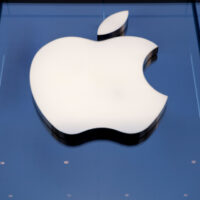Apple Countersues Qualcomm for Patent Infringement
 San Diego – Qualcomm has long accused Apple of infringing its patents, but now the tables have turned. In a new countersuit, Apple alleges that it owns at least eight battery life patents that Qualcomm has violated. Apple, the company that kickstarted the modern smartphone, stated that Qualcomm is acting like a “common patent troll” – a company that hoards intellectual property without making any real products.
San Diego – Qualcomm has long accused Apple of infringing its patents, but now the tables have turned. In a new countersuit, Apple alleges that it owns at least eight battery life patents that Qualcomm has violated. Apple, the company that kickstarted the modern smartphone, stated that Qualcomm is acting like a “common patent troll” – a company that hoards intellectual property without making any real products.
San Diego based Qualcomm is a long-standing technology company specializing in LTE chip design. The two companies have been entangled in a legal war since the beginning of 2017. Apple sued Qualcomm for $1 billion, accusing the company of charging unfair royalties for “technologies they have nothing to do with” and failing to pay for quarterly rebates.
Apple proclaims that Qualcomm charges excessive licensing fees by requesting a percentage of an iPhone’s entire value, while Qualcomm says its technology is “at the heart of every iPhone” and that Apple could not have invented the iPhone without Qualcomm’s innovations.
Qualcomm recently released its Snapdragon 820 Mobile platform with X12 LTE and described it as, “one of the most cutting-edge mobile processors ever created.” The processor only draws the minimum amount of power needed from the battery for a particular task, and is then powered down when it is not needed. These chips power a wide variety of Android-based devices and it is these chips that Apple claims are infringing on its power efficiency patents.
Qualcomm and Apple might be severing their relationship in 2018. Qualcomm has already asked the United States International Trade Commission to block imports of select iPhone models and has requested that China stop manufacturing and selling iPhones.
Apple has used Qualcomm chips in its devices for many years, but has recently started using chips from Intel as well. Qualcomm is allegedly concealing software that Apple needs to test the LTE chips in its iPhone and iPad prototypes, necessitating the move. Qualcomm, meanwhile, apparently denies the claim saying that Apple has already tested the chip that would be suitable for the next-generation iPhone.
According to The Wall Street Journal, Apple does indeed have plans to stop using Qualcomm chips altogether in 2018. Although it is still up in the air, Apple could supposedly switch suppliers as late as three months prior to any 2018 launch.













